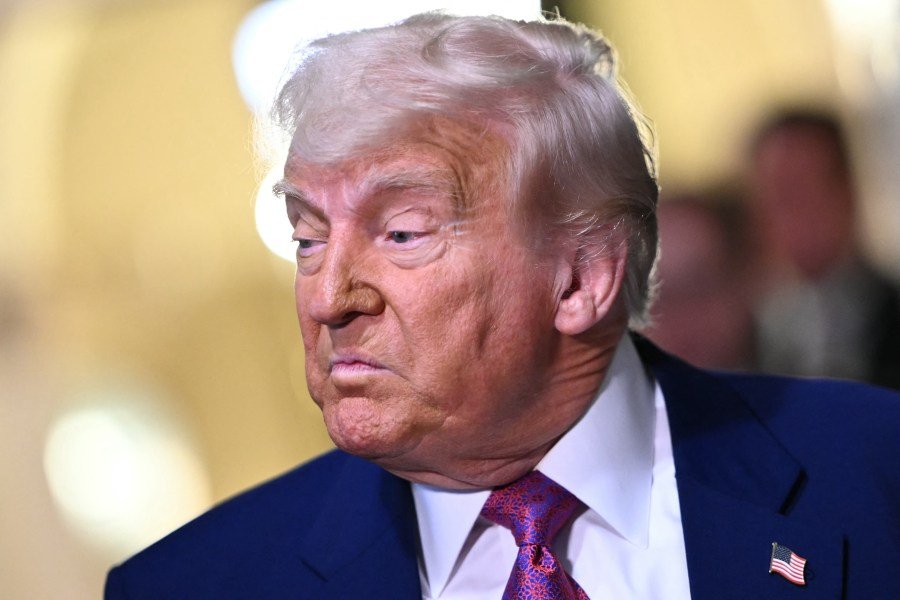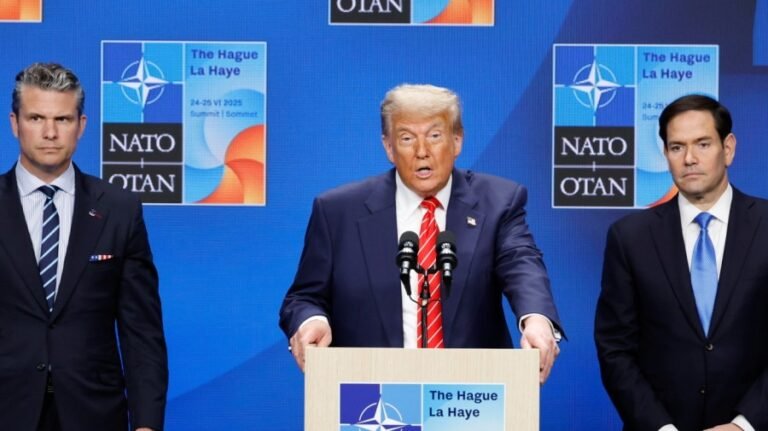
In a sweeping unanimous decision that landed like a constitutional earthquake, a three-judge panel at the U.S. Court of International Trade just delivered what may ultimately prove to be the most devastating blow to Donald Trump’s presidency yet, by ruling that his sweeping tariffs exceed his statutory authority under federal law.
The court didn’t just strike down specific tariffs, either; they demolished the entire legal foundation upon which Trump’s trade war was built. The president’s house of cards didn’t just wobble with this loss — it has collapsed entirely.
Trump’s entire negotiating philosophy was built on the premise that he could threaten economic chaos if other countries didn’t bend to his will. The credibility behind those threats just evaporated entirely, because credible threats require actual authority to carry them out.
The timing couldn’t be more politically devastating.
If Trump appeals to the Supreme Court, as he almost certainly will do, the most optimistic timeline has a ruling coming down in late 2025 or early 2026. More realistically, we’re looking at a final result being delayed until the summer of 2026. This means that Trump faces a choice between accepting defeat or spending the next year and a half as a raging lame duck on trade policy, totally unable to continue making credible threats while his international counterparts watch him flail helplessly through the courts.
Even worse for Trump, the Supreme Court’s recent jurisprudence on executive power suggests he faces an uphill battle. The court’s development of the Major Questions Doctrine shows an increasing skepticism toward sweeping executive claims of authority, requiring Congress to speak very clearly when delegating powers of vast economic significance — like, for example, tariffs on almost all imported goods. Trump’s appeal is a long shot at best.
Moreover, the political timeline puts Trump in an impossible position in that, even if he somehow wins at the Supreme Court, he can’t credibly restart his tariff offensive in 2026 without looking economically reckless right before the midterm elections. The markets uniformly tanked when he kicked off his trade war the first time. Threatening to restart that chaos just months before Americans head to the polls would be political suicide for his party, which already maintains bare majorities in both houses.
America’s international trading partners are undoubtedly celebrating this decision, because they now hold all the cards. Every economic negotiation Trump enters will now be conducted from a position of obvious weakness. His counterparts know he can’t escalate, can’t credibly threaten retaliation, and is legally constrained from the heavy-handed tactics that defined his primary negotiating approach.
The psychological impact of this loss cannot be overstated. For years, foreign leaders have had to calculate whether Trump’s tariff threats were bluster or genuine policy. That uncertainty gave him leverage even when his legal authority was questionable. Now, every world leader knows he’s been legally neutered on his signature issue. They can simply wait him out, knowing that any aggressive moves will likely be struck down by courts that have already declared his approach unlawful.
This constitutional straightjacket comes as Trump’s broader economic strategy is already teetering on the edge of disaster. As I’ve previously documented, his fiscal policies are driving America toward a cliff at breakneck speed, with Treasury rates and dollar values diverging in ways that signal dangerous erosion of international confidence in American economic stewardship. The markets have been flashing red warning lights about unsustainable debt loads just as Republicans push forward with multitrillion-dollar tax cuts for the wealthy.
With tariffs now off the table, Trump is left holding only the most fiscally destructive tools in his arsenal — the very deficit-exploding policies that are already spooking bond markets and driving up borrowing costs. In order to have a second-term accomplishment to hang his hat on, he’s essentially been forced to double down on the economic suicide mission I’ve been warning about, at exactly the moment when fiscal prudence has become most critical.
Nicholas Creel is an associate professor of business law and ethics at Georgia College and State University. The views expressed in this article do not necessarily reflect those of the university or any other institution.


